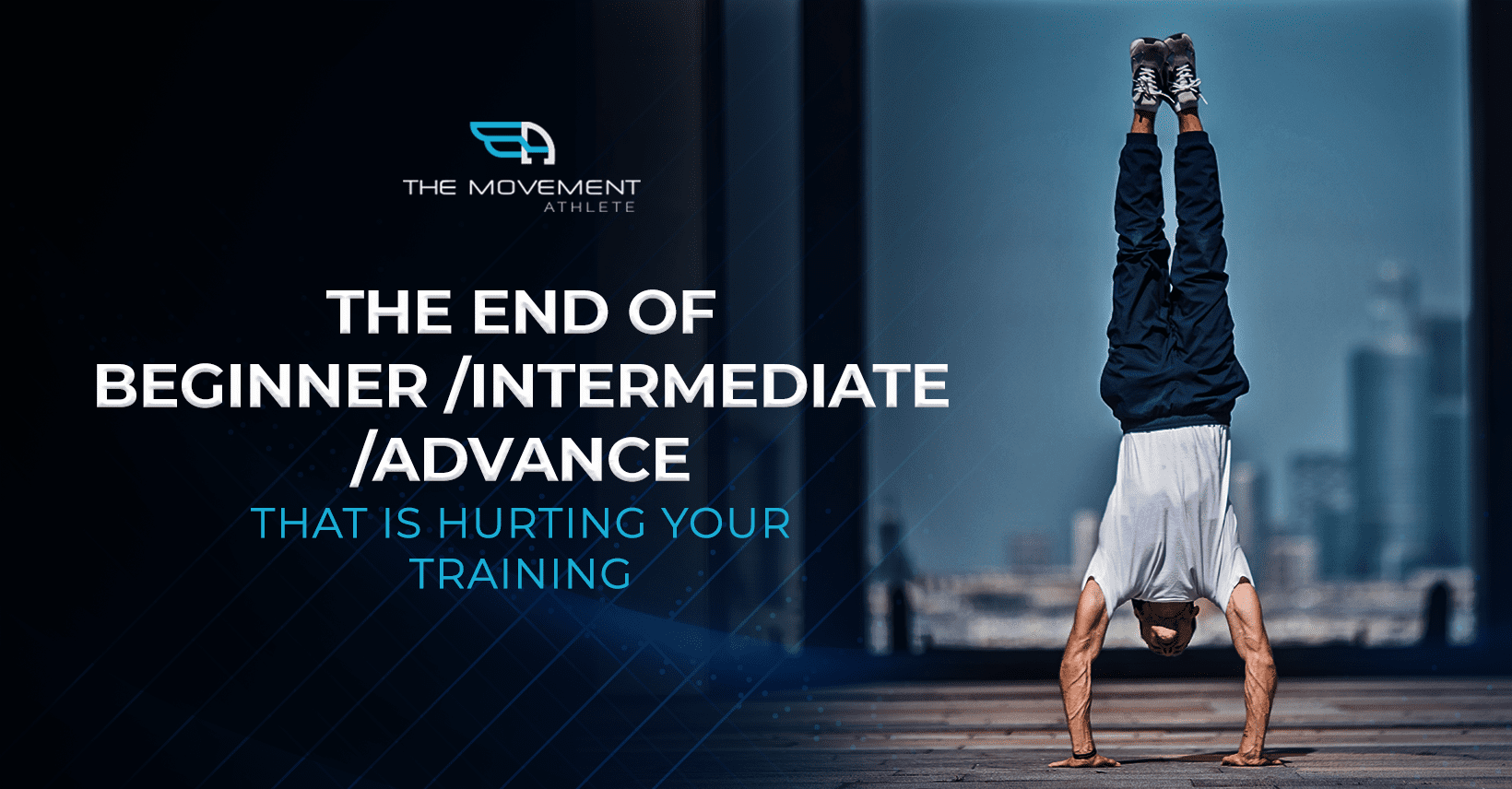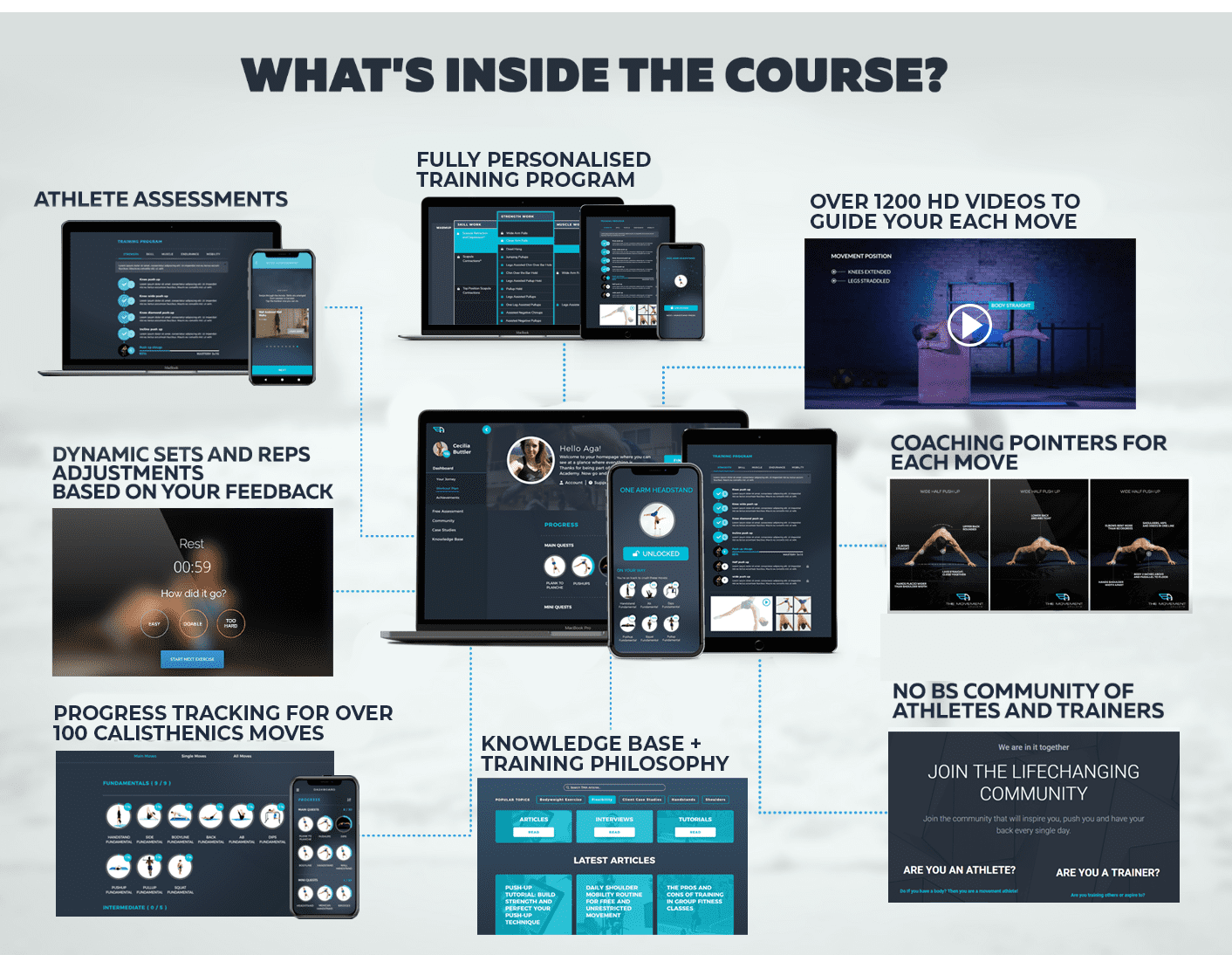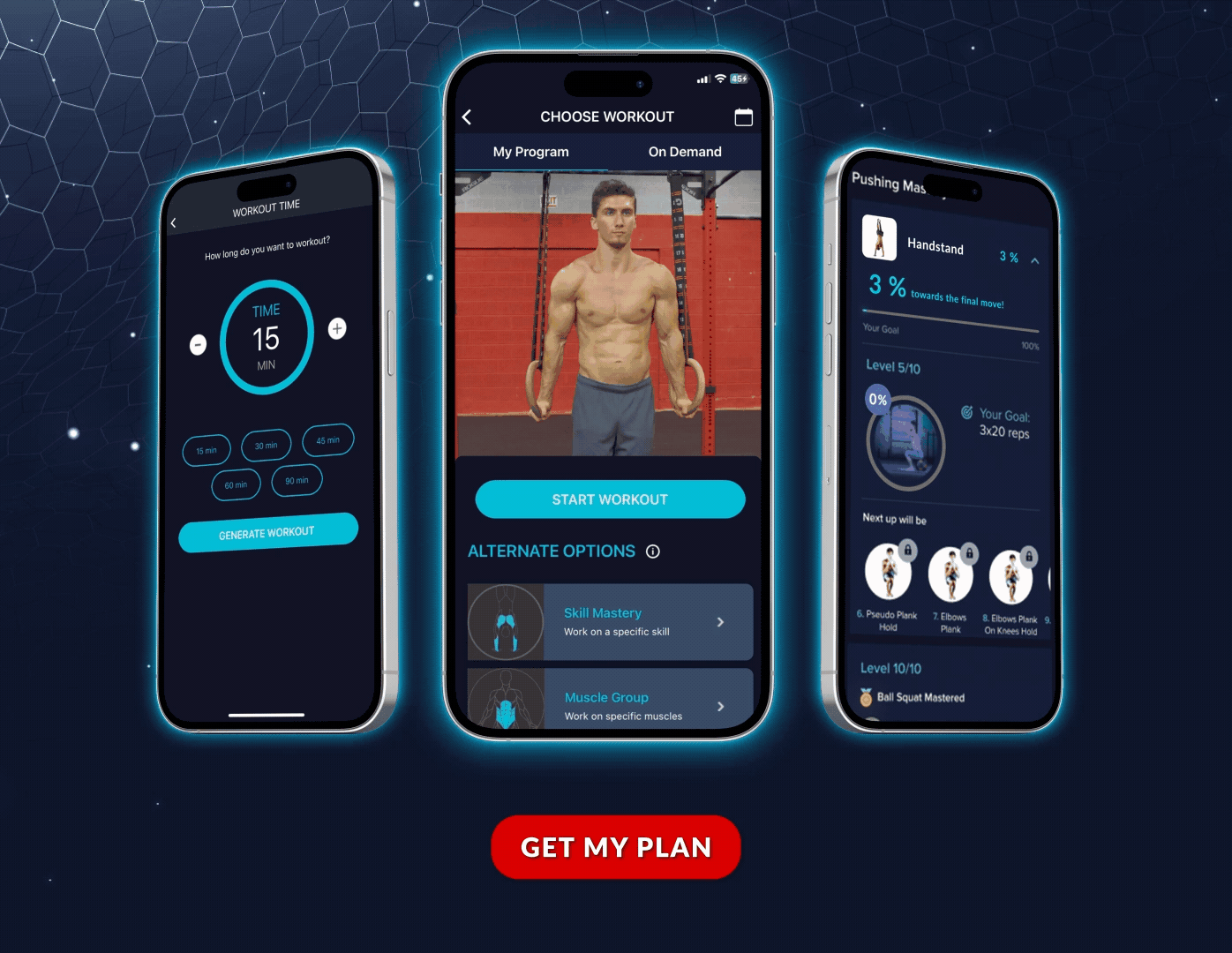

The End of Beginner/Intermediate/Advanced Training: Why One-Size-Fits-All Programs Hurt Your Progress
📖 Read Time: 8 Minutes | 🎯 Difficulty: All Levels | 💡 Based on Dr. Tilly’s Research
🏆 Join 100,000+ Movement Athletes!
Ordinary people achieving extraordinary results with personalized calisthenics—no cookie-cutter programs!
✅ Personalized training
✅ Injury-free progress
✅ Real results
Takes 5 minutes • Personalized to your level • No credit card required
📋 What You’ll Learn
- My Story: 6 months of frustration despite 20 hours/week training
- The Research: Dr. Tilly’s findings on generic program failures
- Problem #1: Too challenging = compensation and injury risk
- Problem #2: Too easy = no adaptation or development
- The Solution: How personalization changes everything
- Technology: Making individual programming possible
A few years back I moved to Glasgow – I was well into calisthenics and started training at the local Circus School Aerial Edge. The next months that followed were some of the most fun, yet frustrating months in my training career.
I absolutely fell in love 😍 with acrobatics, handstands, moving and seeing how my body was changing. I didn’t know much about programming for bodyweight, circus movement, or acrobatics. So I attended all the group classes and was just learning as much as I could and enjoying myself – the training added up to 15-20 hours a week – which I absolutely loved.
I even got ripped, not even knowing about it.
There was just one problem…
6 months in – and I felt like I had hardly made any progress.
Don’t get me wrong, the six-pack was there, my handstand was getting better, my tucks were getting tighter, and I definitely was more flexible and mobile – BUT when friends and family asked how I was doing… I had nothing really to show for all the training I had completed…
What was going on? 🤔
🔍 The Research That Changed Everything
Knowing that patience is key, especially in calisthenics, I kept going. But then I got really frustrated and spent months researching, reading books and learning how to train and program this type of training effectively.
Turns out that advanced gymnastics and calisthenics moves are way more complex than we imagine.
💡 Key Discoveries
- My handstands were lacking serious shoulder mobility, hindering freestanding holds 🤸♀️
- Practicing multiple skills simultaneously (back tucks AND back handsprings) was confusing my body
- Not training consistently for months was hindering progress adaptation
The most surprising part? I’m not the only one struggling with this. Once I started working with The Movement Athlete Academy – we saw people from all over the world struggling with the same issues.
During this time I came across an article which perfectly explained what was going on. Dr. Tilly – the author of the article I’m referring to, explains how a lack of personalization, even at the level of competitive gymnastics, is hurting athletes’ progress.
He described a program where all students are given an assignment that was the same level of difficulty: 3 sets of pull-ups, dips, handstands, push-ups, and then 2 sets of 20 leg lifts. Something we all know from school or gym classes.
No matter the level, it was the same training.
Now you might not be taking group training, but this is EXACTLY what you get in any calisthenics and gymnastics program online. They might assign you to beginner/intermediate/advanced level – but you’ll be doing the same as all other folks in your group.
What’s the problem with that, you ask? Well. Here it is.
The Problems with One-Size-Fits-All Training
Below is a breakdown of the few critical problems that generic programs create:

PROBLEM #1: TOO CHALLENGING
Promoting compensation, movement dysfunction, and possible injury risk
“Say for example part of your conditioning assignment is 3 sets of 5 handstands and push-ups. You send your team of 20 gymnasts to do it. Maybe for 12 of them, they are appropriately challenged by the workload and it will serve to make them adapt and get stronger.
However, for 4 of them it may be too challenging and with the ‘get it done’ mindset, they may have to:
- 🚨 Cheat their range of motion
- 🚨 Use poor form like excessive back arching
- 🚨 Simply not complete the exercise
Not only is this dangerous and ingrains movement dysfunction, but it won’t develop real strength. When you factor in fatigue, things deteriorate even faster, leading to overwhelm and frustration.”

PROBLEM #2: TOO EASY
Not promoting adaptation/development if not challenging enough
“The other side of the coin – there may be 4 athletes who breeze through the exercises and as a result don’t get a challenge that stimulates development.
Although this isn’t as dangerous as compensation issues, these athletes aren’t going to continue getting stronger, faster, or more powerful.
These athletes need progressions to ensure it’s challenging enough for them.”
📋 Dr. Tilly’s Conclusion
“Slamming a square block into a triangular hole may not be the best choice. The whole ‘1 step back for 2 steps forward later’ and building a house on a concrete foundation versus sand analogy is a good fit here.”
🚨 The Real Cost
- Safety disaster: Increased injury risk from poor form
- Progress killer: Months of hindered athletic development
- Individual ignored: We all have different characteristics
- Ineffective results: You won’t progress effectively
Do you need any other reasons why cookie-cutter workouts should not be used again?
So why on earth are we still not personalizing these workouts?
⚡ The Challenge: Why Coaches Can’t Personalize
In his article, Dr. Tilly talks about coach ego, culture, and “the way we’ve always done things.” But the biggest problem is:
IT’S EXTREMELY HARD
When you get a bunch of people for a workout, you’d have to analyze every single person and give them personal options. For the coach, it’s IMPOSSIBLE.
How can you personalize training for every person based on their PERSONAL STRENGTHS, MOBILITY, FLEXIBILITY, and HISTORY? 💪
That calls for serious, hours-heavy and expensive personal training programs.
Well… unless you can leverage technology to do just that…
🚀 The Solution: Personalization at Scale
👉👉 And this is why personalization is at the HEART of what we’re building inside The Movement Athlete Academy.

🔐 How Our Personalization Works
As you join the program, you’ll be run through a comprehensive athlete assessment to figure out EXACTLY where you are on the progressions and create a fully personalized training program just for you.
But that’s not all.
⚡ Real-Time Adaptation
- Comprehensive Assessment: Evaluate your exact starting point
- Personal Feedback Loop: System adjusts sets and reps based on your responses
- Optimal Progression: Workouts perfectly calibrated to your current abilities
- Injury Prevention: Never too easy, never overwhelming
Ready to Experience True Personalization?
Join The Movement Athlete for free! We know you will love it. 💯


🔥 Limited Time: Free Personalized Assessment ($197 Value)
Stop Generic Programs. Start Personal Progress.
Get Your Custom Training Plan in 5 Minutes
⭐⭐⭐⭐⭐ Join 100,000+ athletes getting REAL results
✅ Comprehensive athlete assessment ($197 value)
✅ Personalized progression roadmap ($297 value)
✅ Daily adaptive workouts ($47/month value)
✅ Real-time form corrections ($197 value)
✅ Injury prevention protocols ($97 value)
🎆 Total Value: $835 – Yours FREE Today
🔒 100% Privacy Guaranteed • No Credit Card Required • Unsubscribe Anytime

“After 2 years of generic programs with minimal progress, TMA’s personalization changed everything. The system adapted to MY strengths and weaknesses, not some imaginary ‘intermediate’ athlete. Finally saw real progress!”
— Marcus, 28, Software Developer